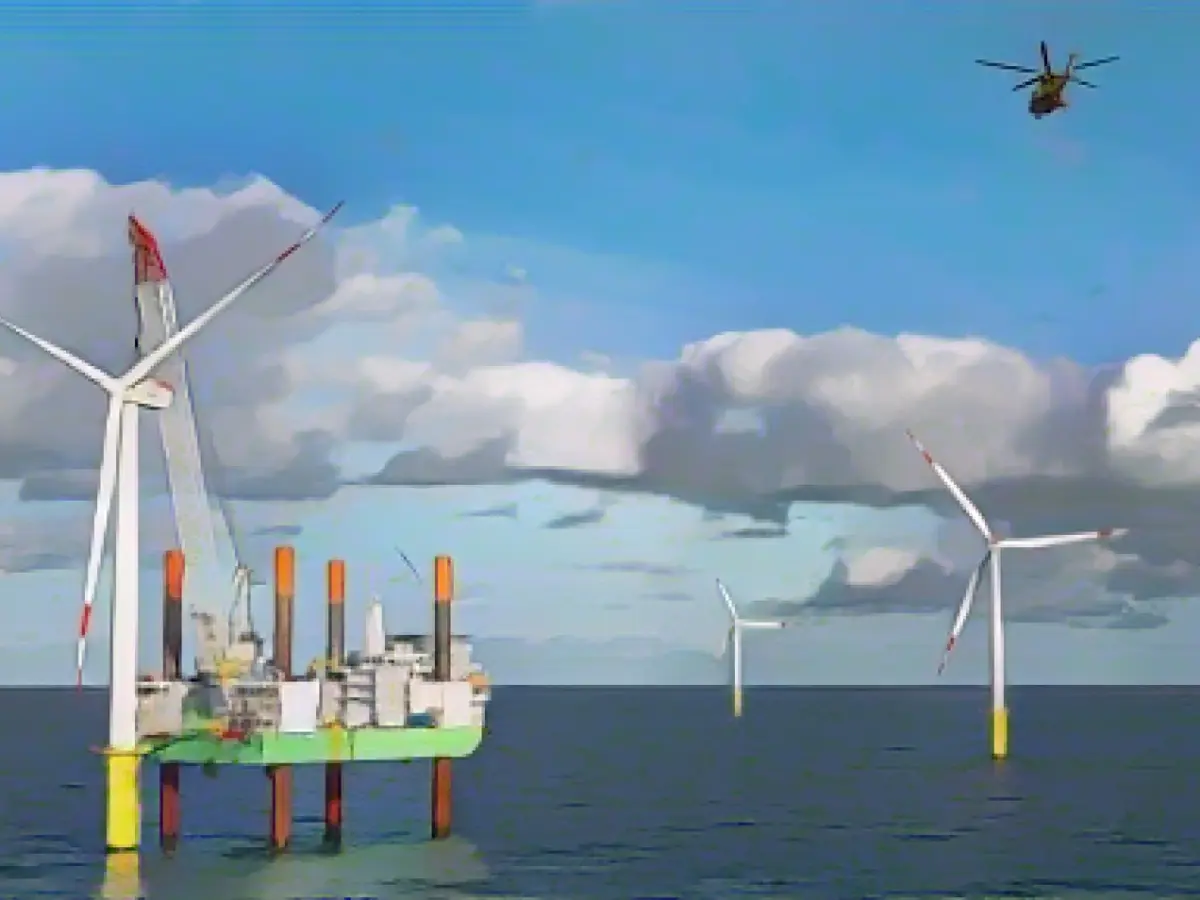Energy - IG Metall demands immediate wind power program
Despite the current budget crisis, IG Metall believes that the federal government must support the planned expansion of wind energy with state aid. "We need an immediate program for loans and guarantees for the entire wind energy supply chain for the entire wind industry," said the union's coastal district manager, Daniel Friedrich, to the German Press Agency. "The companies are not in such a liquid position now that they can shoulder this alone."
If the expansion of wind power is to succeed, it must be supported by the state, for example via the federal development bank KfW, via a fund or similar, so that the industry can make the necessary billion-euro investments, said the trade unionist. "And of course the state also has a role to play," said Friedrich. "In Germany, too, we have to accept that what is happening here in the north is not a regional activity, but is about ensuring and guaranteeing the energy supply for the whole of Germany, and to some extent for Europe."
Friedrich named the ports, which need to be expanded at a cost of billions for the energy transition, as an important issue in the north. For example, the wind industry has calculated that the expansion of wind energy at sea would require additional heavy-duty areas equivalent to 270 soccer pitches. The northern German federal states have therefore demanded that the federal government increase federal funding for seaports tenfold.
"The money that the federal government has recently made available, the few more than 40 million euros, is really laughable, no more than a drop in the ocean," said Friedrich. "We have to understand that the North has to tackle the tasks of the future for industry, energy supply and global trade. And it will not be able to do this alone, it will only be possible through a national task," demanded the trade unionist. "And we will have to invest heavily in this and not say that the federal states should sort it out on their own, that won't work."
Like Federal Minister of Economics Robert Habeck (Greens), for example, IG Metall also considers the debt brake to be outdated against this backdrop. It is enshrined in the Basic Law and is intended to limit the federal government's new borrowing. "We can't carry the issue of debt before us like a monstrance and pretend that the problems of the future don't exist," said District Manager Friedrich. "In ten or fifteen years' time, we won't be celebrated for having complied with the debt brake, but we will be celebrated for having invested in the future, for having a functioning infrastructure and for the generation after us having good jobs."
Read also:
- A clan member is punished here
- Traffic lawyer warns: Don't talk to the police!
- Will he be convicted as Jutta's murderer after 37 years?
- He also wanted to kill his cousin
- IG Metall, led by Daniel Friedrich, advocates for immediate government support in the form of loans and guarantees for the wind energy sector, recognizing the industry's inability to fund the required billion-euro investments on its own due to the budget crisis.
- Friedrich emphasizes the importance of wind power expansion for the whole of Germany and Europe, highlighting the significant role that ports, which require billions for expansion, will play in the North's energy transition.
- The northern German federal states have called for tenfold increases in federal funding for seaports to facilitate wind energy expansion, as the industry's calculations indicate a need for additional heavy-duty areas equivalent to 270 soccer pitches.
- Friedrich critiques the insufficient financial support provided by the government for the North, describing the recent allocation of 40 million euros as "a drop in the ocean," and stressing the need for collective national efforts and substantial investment.
- Against the backdrop of an outdated debt brake, IG Metall, just like Federal Minister of Economics Robert Habeck, argues that the country cannot afford to prioritize debt management over addressing the challenges of the future, which include ensuring a functional infrastructure and creating opportunities for the next generation.
- In a decade or two, Friedrich envisions Germany being celebrated for its investment in the future, including the generation of renewable energy, rather than being admired for adhering to the strict debt brake and its austere financial policies.
Source: www.stern.de








